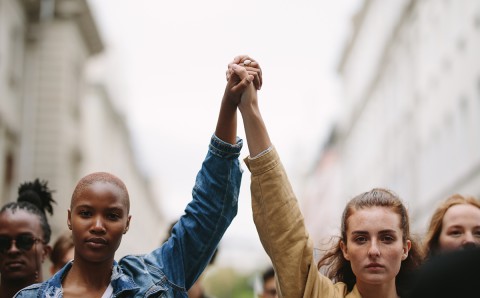The struggle to live in unity when everything’s divided
We know how to wield a sword, but nobody taught us how to cultivate a field.

We are always changing, from the time we are conceived to our first breath of air to our last. Sometimes the changes are almost imperceptible—until they’re not. You go to sleep. You wake up. Over and over again. Then, one day you go to give your mother a hug and you tower over her. You never felt it happen, yet there you are.
Sometimes change is seismic and sudden and shattering, those life-changing moments that mark our lives indelibly. Sometimes it falls between the imperceptible and the tragic: friends moving, restaurants closing, new faces in the neighborhood, a high rise where the corner coffee shop stood. Sometimes it’s births of children or new puppies or marriages that blend two families together.
Living inside change can be frightening. For some people, certainty was a given. In a world shaped by colonialism, there was a natural order, there were self-evident truths. The White homogeneity of their schools and neighborhoods and workplaces was a confirmation of what they believed God intended. But change always comes, and the prospect of giving something up can feel disorienting. They might grab whatever they can that provides a sense of purpose and place, even if it is nothing more than a hoax or a con. But change comes.




